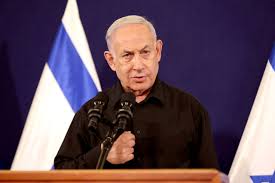Alexey Naumov
The Americans kept their promise and left Afghanistan. On the night of August 31, their last military aircraft departed from Kabul airport. After almost 20 years of war, another, not the most glorious page in the history of the United States has been closed: Washington surrenders the country to the forces with which it once came to fight. In Kabul, there remains not only devastation, fear of the unknown, about two hundred Amer-icans and tens of thousands of “Afghan allies”, but also an American reputation among European partners, as well as the confidence that one can establish one’s own order in a foreign distant country by force.
Two generals
“That’s it, the last one flew away! I cannot express my happiness in words! 20 years of victims were not in vain! ” – Taliban Hemad Sherzad was broadcasting live from the Kabul airport and could not hide the joy of what was happening. Airplanes no longer flew in the sky, but bullets flew – Mr. Sherzad’s comrades-in-arms celebrated the long-awaited triumph by firing into the air. At this time, “Taliban special forces” entered hangars left by the Americans to examine rich trophies – 73 aircraft and helicopters, 27 Humvees, 70 anti-mine trucks, as well as anti-missile and mine protection systems. Perhaps the special forces were the only Taliban who experienced disappointment that day: as the Americans reported, all equipment was rendered unusable, and the Afghans received only things intact.
At this time, General Frank Mackenzie, the head of the central command of the US armed forces, reported on the completed mission. “Today’s withdrawal marks both the end of the military component of the evacuation and the end of a nearly 20-year mission – a mission that began in Afghanistan shortly after September 11, 2001. This mission brought Osama bin Laden and many of his accomplices from Al-Qaeda to justice. But this mission did not come cheap: we paid for it with the lives of 2,461 military personnel and civilians, and more than 20 thousand people were injured. Unfortunately, this list also includes 13 servicemen who died last week due to a suicide bomber from the organization “Vilayat Khorasan”. We honor their sacrifice and today we remember their heroic deeds, ”the commander said to the Americans.
General Mackenzie, however, focused more not on the outcome of the war – there was clearly nothing to brag about – but on the evacuation of the last days. He said that in 18 days, US military aircraft evacuated 79,000 civilians from the country, including only 6,000 Americans, and all coalition planes evacuated 123,000 people in total. The journalists also failed to bring him back to discussing the entire campaign: as soon as a Fox News reporter asked him about the war, the general replied that he did not have time to think about it, since all his thoughts were about evacuation.
Joe Biden appointed Secretary of State Anthony Blinken to be responsible for the political part of the comments. The US President himself wanted to forget about Afghanistan as soon as possible and focus on combating the aftermath of Hurricane Ida, which attacked the United States.
Mr. Blinken, praising American diplomats and the military, said that the US diplomatic presence in the country is ending, and that the de facto embassy is moving to Qatar, where it will be mainly occupied with visa assistance to refugees and other migrants from Afghanistan.
The head of the State Department called this stage “a new page of American interaction with Afghanistan,” when the United States will act there by diplomatic methods, although just a month ago he expressed confidence that the embassy would work and interaction with the new Afghan authorities would be in full swing. He also called on the Taliban to keep their word and to allow anyone who wants it to leave the country – and in Afghanistan, we recall, there are about 200 US citizens and tens of thousands of “allied Americans” Afghans.
An entourage without a king
“My trip is about America’s renewed commitment to our allies and partners, as well as demonstrating the ability of democracies to meet the challenges of a new era and to resist its challenges,” – as US President Joe Biden wrote in a column for The Washington Post earlier this summer, ahead of his visit to Europe…. It was not a simple, routine trip: after four years of the presidency of Donald Trump, famous for his Euroscepticism, the grandees of Europe have waited for the return of the “democratic king.”
“We must put to shame those who believe that the era of democracy has come to an end, and some countries think so. We must prove that the idea that dictatorial orders can keep pace with the speed and scale of the challenges of the 21st century is false ”- this is how the President addressed the servicemen at the Mildenhall military base in Great Britain, not doubting that they hear him both in London and in Brussels. both in Moscow and in Beijing. “We need to make sure that democracies – starting with ours – can cope with the most important challenges of our time. We will defend transparency and the rule of law, support civil society and independent media, ”- said already in the New Atlantic Charter, adopted by the US President and Prime Minister of Great Britain.
The thunderous tread of the transatlantic allies should have convinced all doubters: America has returned, and with it the “collective West” has returned. These words – “America is back” – were then happily uttered by the head of the European Commission Charles Michel in a conversation with journalists. And the Munich Security Conference (an influential event bringing together leading politicians and internationalists), which discussed the concept of “Westlessness” back in 2020, proudly proclaimed the advent of the “After Westlessness” era in 2021.
Now there is no trace of the former confidence and unity. Remarkably, the matter is not only in Afghanistan: Washington has not abolished a number of anti-European duties that have been “Trump” yet and has not opened entry to the United States for Europeans.
The Afghan fiasco only exacerbated the already increasingly sensitive tensions between the allies.
Suffice it to recall that during the meeting of the G7, Joe Biden was forced to go against the European grandees again and resist persuasion to postpone the end of the US mission in Afghanistan. The collective NATO was forced to obey the chief NATO member. This could not but cause a response.
“We must strengthen Europe so that we will never rely on the Americans again,” said German politician Armin Laschet, the most likely successor to German Chancellor Angela Merkel, during Sunday’s televised debates. “Did we really think that we should just follow in the footsteps of the United States and hope that everything will work out on parole and on one wing?” – the former Prime Minister of Great Britain Theresa May denounced the Afghan incident during a speech in front of colleagues. It is particularly noteworthy that the NATO mission in Afghanistan was the first operation in the history of the alliance, launched as a result of the application of article 5 of the treaty, which provides for a collective response to an attack. And it was precisely this mission that ended completely without consulting NATO, by a strong-willed decision of the President of the United States.
Analyzing the painful reaction of the Europeans, one cannot, however, ignore the ideological factor. “I believe that much of the European frustration stems from the awkward realization that Europe is no longer as important to the United States as it was in the past,” says Stephen Walt, professor of international relations at Harvard University, in Foreign Policy. According to him, the European allies of the United States cannot be called insignificant, but their relative importance for Washington has sharply decreased after the collapse of the Soviet Union. “Donald Trump was the first president to formulate these ideas openly, and now European allies fear that they were not a deviation from the norm,” sums up Mr. Walt.
Shootout architect
European humiliation might not be so painful if the man Steven Walt rightly points out was not responsible for the deal with the Taliban. Donald Trump, frankly, has long been disillusioned with the war in Afghanistan. In 2012, he wrote on Twitter that the war is frankly useless and the soldiers must be urgently returned home. He repeated similar calls for immediate withdrawal in 2013 and later. He promised to end the “endless wars” during the election campaign – and when he came to power, he began to fulfill his promises.
The first time Donald Trump surrounded himself with generals, they were able to restrain his desire to end all conflicts immediately. Then the period of trust in the military ended – its symbolic conclusion was the sacking of Defense Secretary James Mattis, who in his farewell letter outlined his vision of the importance of cross-border partnerships and alliances for the power of the United States. Untie his hands, Mr. Trump entered into negotiations with the Taliban and, apparently, wanted a peace deal so much that he was ready to make any concessions. If you study the text of the agreement, then you can draw the following conclusion from it: Donald Trump agreed to withdraw all troops in 14 months, end military and technical support for the Afghan government, weaken economic sanctions against the Taliban and commit himself not to interfere in the internal affairs of Afghanistan.
The Taliban, in turn, pledged not to strike at the United States and its allies (while maintaining the ability to hit government forces), to prohibit al-Qaeda and other terrorist groups from using Afghan territory for purposes hostile to the United States, and to enter into negotiations with the Afghan government…. The agreement did not provide for mechanisms for monitoring its implementation, or rather, this mechanism was verbal – Donald Trump promised that if the conditions were violated by the Taliban, the United States would return “with unprecedented strength.” Former US National Security Adviser Herbert McMaster – one of the early generals of Donald Trump’s presidency – eventually called the treaty a “surrender agreement.”
Joe Biden, who was also an opponent of the war and advocated an end to the conflict when he was vice president, “inherited” Donald Trump’s agreement and decided to implement it. To justify himself, he was later forced to refute his own words of the early 2000s and assert that the United States, introducing troops into the country under George W. Bush, did not plan to engage in nation-building in Afghanistan.
The consequences are known. After the Kabul fiasco on the website of the National Committee of the Republican Party, from the page on Donald Trump’s achievements, the line about “historic peace deal with the Taliban” was removed.
Disappointed Democrats
The results of almost 20 years of American stay in Afghanistan can be summed up in one word: disappointment. Many Americans – especially those who don’t remember Vietnam and the massive antiwar movement – have learned that their country may be wrong, it may be weak, it may be a loser. They learned that it was impossible to bring your order and way of life to a distant country by force. The corresponding reflection also began in society.
“We need a forward-looking, stubborn foreign policy focused on national interests. A policy that protects the American way of life and does not fall prey to megalomania. It is time for the late empire to collect its thoughts and start building a working nation-state here at home, ”writes The New York Post. “Politicians are pouring accusations to garner voter support and protect their legacy. But when the United States blames others, it does not admit its mistakes and therefore has to repeat them. When the United States blames others, it lives in denial, does not accept responsibility for the consequences of its military actions, ”says USA Today.
However, criticism of the system as a whole does not touch the social foundations and does not question the value foundation and good intentions of the United States. “The lesson of Afghanistan is not that the United States is some particularly inept or even more malicious country. It is that the United States is constantly trying to prove that it should do what it cannot do. Americans say they have to do something, and they convince themselves that they can do it, ”- notes the author of the article in the pages of Foreign Policy.
Journalists and experts also draw attention to a certain radicalism in the judgments of American society, almost a biblical dichotomy. “We Americans love to fool ourselves. We want to believe that there are good wars and there are bad ones. We love it when the winner and the loser are clearly known. But those who fight on the battlefield rarely resemble Captain America and his enemy, Hydra, ”the truth is revealed in The Wall Street Journal.
There are several recipes for getting out of the situation. For example, New York Magazine suggests: “In all other aspects of human life, we view brute force as the antithesis of human interaction. The use of power both at home and on the street entails the disintegration of social interaction. But for some reason in foreign policy, when there are calls to “do something”, this call does not stop until the bombs start to fall. ” The Week also makes a similar appeal – to do humanitarian aid.
The Washington Post proposes to correct American diplomacy through “diversification” and diversity (that is, relatively speaking, to replace the racial composition of decision-makers), while the left-wing British The Guardian spares no one: “Nothing has been decided. No lessons learned. No substantive assessment of the war on terror has been made. ”
Russia is also calling for lessons to be learned from what has happened. Still, a lesson must be learned after Iraq, after Libya, and now after Afghanistan. Attempts to impose someone else’s system of values are very explosive, ”said Russian Foreign Minister Sergei Lavrov. He noted that Moscow stands for peace and security on the territory of Afghanistan and the prevention of its use by terrorists, drug dealers and other criminals.






